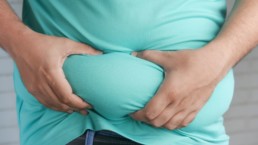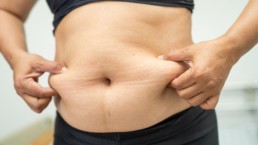Types of Tummy Tucks: What Are the Differences?

Plastic surgery is popular among individuals looking to contour their abdomen and achieve a toned, smooth silhouette. One of the top plastic surgeries in Tijuana, Mexico, is the tummy tuck, also known as abdominoplasty. This procedure removes excess fat and skin from the abdomen to create a more aesthetically pleasing shape. As with any surgery, different tummy tucks can be used depending on your needs and body type.
A tummy tuck is one of the popular surgical procedures in the United States for achieving a more sculpted midsection. The procedure eliminates excess fat and skin and stretches abdominal muscles caused by pregnancy or weight fluctuations.
How Is a Tummy Tuck Performed?
Tummy tuck surgery, or abdominoplasty, is a procedure that removes excess fat and skin from the abdomen to create a smoother, more toned appearance. It can also help tighten the abdominal wall muscles for a slimmer silhouette. Depending on your individual needs, there are four main types of tummy tuck procedures.
1. Full Tummy Tuck
A full tummy tuck is the most extensive abdominal surgery and involves a horizontal incision along your bikini line. This procedure removes excess fat, tightens the abdominal muscles, and eliminates loose skin from the lower abdomen area. This procedure is ideal for those who have experienced dramatic weight loss and need to remold their abdomen.
2. Extended Tummy Tuck
Similar to a complete tummy tuck procedure, the extended tummy tuck adds a second incision along the waistline to incorporate the hip area. This procedure is ideal for those who target excess skin and fatty tissue in the entire abdominal area and reshape their body contours.
3. Mini Tummy Tuck
A mini tummy tuck is a less-invasive procedure focusing only on skin and fat below the belly button. This type of procedure is ideal for those looking to correct moderate to mild stretch marks or sagging skin below the navel area. During a mini tummy tuck, your surgeon will remove excess fat and skin while tightening the abdominal muscles to create a more contoured stomach. After surgery, you may experience minimal scarring and better abdominal tone and shape.
4. Reverse Tummy Tuck
A reverse tummy tuck is designed to correct stretched or sagging skin on the upper abdomen. This surgery is ideal for those who have lost a significant amount of weight and are seeking to tighten the abdominal area. During a reverse tummy tuck, your surgeon will make an incision at the top of your abdomen and pull the skin downwards to tighten it. This procedure can also be combined with liposuction for optimal results.
Tips To Recover Faster After a Tummy Tuck Procedure
A tummy tuck procedure is a major surgery that can help you achieve a flatter, smoother abdominal area. Here are tips to help you recover faster after this procedure:
- Follow postoperative instructions given by your surgeon. These instructions may include taking rest and avoiding certain activities that may put a strain on the incision area.
- Take medications prescribed by your doctor to reduce pain and swelling.
- Wear compression garments as your surgeon recommends to help support the abdominal area.
- Keep your incision site clean and dry to reduce the risk of infection.
Call Hospital BC for the best tummy tuck procedure in Tijuana. Our experienced surgeons are highly skilled and knowledgeable in tummy tuck procedures.
What To Expect During Gastric Sleeve Surgery Recovery?

Weight loss surgeries help individuals lose weight who may not be able to do so through diet and exercise alone. Gastric sleeve surgery is one of the most common weight loss surgeries available today. Many patients see significant health improvement and weight loss in just a few months post-surgery.
There are many tips to recover faster after gastric sleeve surgery. For example, proper nutrition, adequate hydration, and regular exercise are all critical components of a successful recovery.
Read more: Expert Tips to Recover Faster After Gastric Sleeve Surgery.
The following guide will provide an overview of what to expect during gastric sleeve surgery recovery from day one.
How Long Will You Stay in the Hospital?
Gastric sleeve surgery is an outpatient procedure, so you should be able to go home the same day. Most patients can leave within a few hours of their surgery. If you have significant medical problems or the surgeon and anesthesiologist feel it would be safer for you to stay overnight, they may opt to do so.
Most patients stay in the hospital for 1 to 2 nights after gastric sleeve surgery. During this time, your physician will monitor your vitals, and you may receive intravenous fluids for hydration until you can drink on your own.
What Kind of Pain Can You Expect?
Pain levels vary from patient to patient. Most patients report mild discomfort and some tenderness in the abdomen during the first few days after surgery. Many surgeons prescribe pain medications or a combination of ibuprofen and acetaminophen to help manage any post-operative pain you may experience.
What Are the Diet Restrictions After Surgery?
Gastric Sleeve Surgery is an effective procedure, and you will need time to recover properly. Immediately after surgery, your diet will be limited:
1) Clear liquids:
You will only be allowed to drink clear liquids such as water, broth, or plain tea in the first few days after surgery.
2) Soft foods:
Once your stomach has healed and tolerated, you may add soft foods to your diet. These should mostly be protein-rich sources such as eggs, fish, or yogurt.
3) Solid foods:
After a few weeks, your diet can transition to solid food. Start with small portions and slowly increase. You should eat slowly and chew your food thoroughly before swallowing.
What Factors Affect the Recovery Process?
Recovery time for gastric sleeve surgery is unique to each individual and can be impacted by various factors.
1) Underlying medical conditions: Those with pre-existing medical issues, such as diabetes and sleep apnea, can take longer to recover from gastric sleeve surgery.
2) Age: Older individuals generally require more time for recovery than younger ones do.
3) Nutrition: Poor nutrition before surgery and during recovery can delay healing.
4) Smoking and Alcohol can impair healing and prevent the body from recovering quickly.
5) Complications: Complications during the surgery, such as bleeding and infection, can affect recovery time.
Following your gastric sleeve surgery, you will need to stay in the hospital for one or two nights so that doctors can monitor your progress and provide you with any necessary medications. Contact Hospital BC for gastric sleeves in Mexico. We offer a comprehensive and safe gastric sleeve recovery program to ensure successful weight loss outcomes.
Signs and Symptoms of Gastric Sleeve Leak

If you have had weight loss surgery to remove part of your stomach, also known as a gastric sleeve, you must know the signs and symptoms of a gastric sleeve leak. A leak can cause serious health complications, so knowing what to look for and how to get help if you think you may leak is essential.
Revision surgery involves correcting or repairing the original surgery. This may be done if the first surgery did not work as planned or if there are complications from the first surgery.
Read more: Is It Possible to Get Gastric Sleeve Surgery Twice?
Here, we will discuss the signs and symptoms of a gastric sleeve leak, the treatment options, and the outlook.
What Are the Crucial Signs of a Gastric Sleeve Leak?
1) Unusual Pain Or Discomfort in the Incision Site Or Around the Stomach
This happens when the stomach acid leaks through the surgical incision. The pain can be severe and may radiate to your back or shoulder.
2) Swelling of the Stomach
Swelling could be a sign that the gastric sleeve isn’t healing correctly. It may also be a sign of an infection.
3) Nausea and Vomiting
When the body is trying to heal a gastric sleeve leak, you may experience nausea and vomiting. This is your body’s way of getting rid of the toxins and bacteria that have leaked into your system. However, if you are vomiting more than once a day or if your vomit is bloody, you should seek medical attention immediately.
4) Diarrhea
Diarrhea is another common symptom of a gastric sleeve leak. This is because the bacteria that have leaked into your system can cause inflammation in your intestines, resulting in diarrhea.
4) Fever
When you experience a gastric sleeve leak, your body temperature may increase. This is because the immune system is working overtime to fight the infection. If you have a fever, it’s essential to seek medical attention right away.
Types of Gastrointestinal Leaks
1) Early Leaks
When the surgery is performed correctly, the staples close to the stomach are very strong. However, in some cases, the staples can come loose soon after surgery, causing an early leak. These leaks usually occur within the first week after surgery.
2) Late Leaks
Late leaks happen when the staple line does not heal properly and starts to leak gastric fluid. These leaks happen a few weeks or even months after surgery.
Signs and symptoms of a late gastric sleeve leak include:
- Abdominal pain
- Heartburn
- Chills
Tips to Avoid and Treat a Gastric Sleeve Leak
- Follow your surgeon’s post-operative instructions closely.
- Make sure to eat bland and soft foods in the early days after surgery.
- Drink more fluids to stay hydrated.
- Avoid strenuous exercise for at least the first few weeks after surgery.
- Take all your prescribed medications as your surgeon or doctor directed.
- If you experience any unusual symptoms or problems, contact your surgeon immediately for advice or treatment.
Hospital BC offers the best weight loss surgery in Mexico. Our doctors are highly experienced in surgery for gastric sleeves in Mexico and board-certified. We will help you achieve weight loss goals and improve your health.
Will Having a Baby Affect a Breast Lift Surgery?

A breast lift surgery is a procedure that helps to reposition and raise sagging breasts. This process removes excess skin and tightens the surrounding tissue to support the new breast shape. A breast lift can also help to improve the appearance of the areola and nipple.
Read more: What to Expect After a Breast Lift?
While a breast lift surgery can provide many benefits, it is essential to understand how having a baby can affect your results.
1. Your Breasts May Not Look the Same As They Did Before You Had a Baby
Sagging breasts, stretch marks, and other changes are common after pregnancy and can affect the appearance of your breast lift. During a breast lift surgery, the surgeon will tighten your breast tissue and remove any excess skin to lift the breasts.
However, even after successful surgery, your breasts may not look the same as they did before you had a baby. The changes in your breasts after pregnancy are natural and permanent, so it’s essential to keep this in mind when considering surgery.
2. The Ability to Breastfeed After a Breast Lift
The ability to breastfeed after a breast lift largely depends on the technique used during surgery. If the surgeon makes incisions around the areola, likely, you’ll still be able to breastfeed. However, if the surgeon makes incisions under the breast, it could damage milk ducts and nerves, making it difficult or impossible to breastfeed.
Formula and other feeding options like pumping are always available, no matter the type of incision.
3. Keep a Check on Weight
A balanced diet and maintaining a consistent weight are essential for all women, but it’s essential for those who have undergone a breast lift.
Weight fluctuations can cause the skin to stretch, which may impact the results of your surgery. Maintaining a healthy weight will help keep your skin tight and prevent sagging in the future.
Exercises like Pilates and yoga can help tone the muscles around your chest and improve your posture, giving you the appearance of a lifted bust.
4. Check Your Medications
Certain medications can cause issues with healing and increase the risk of complications after surgery. Ensure to talk to your surgeon about any medications you’re taking, both prescription and over-the-counter, and see if you need to stop taking them before surgery. You should also avoid taking herbal supplements, which can interact with medications.
5. Second Surgery Options
A breast lift surgery will not stop the aging process; your breasts will continue to change over time. Some women opt for a second surgery, called a revision, to improve their results. Other options include breast implants or a fat transfer.
These medical procedures can help you achieve a more youthful look.
If you plan on having more children, it’s best to wait until after you’ve finished having kids to get a breast lift. Pregnancy and nursing can stretch your skin and alter the shape of your breasts.
If you consider having a breast lift, you may wonder how pregnancy and breastfeeding will affect your results. Call Hospital BC if you need a breast lift in Tijuana. Our plastic surgeons are experienced in performing this type of plastic surgery. We will ensure you are happy with your results.
Why Are You Still Hungry After Weight Loss Surgery?

Weight loss surgeries like a gastric sleeve or gastric bypass in Mexico are popular procedures that can help people lose a significant amount of weight. However, many patients report feeling hungry even after surgery. This situation can be very frustrating and lead to weight gain if not appropriately managed.
Read more: Gastric Sleeve Pre-Op and Post-Op Diet Guidelines
If you are struggling to manage hunger after weight loss surgery, read for some tips.
Understanding the Difference Between Hunger and Cravings
Two primary hormones, ghrelin, and leptin, control hunger. Ghrelin is secreted by the empty stomach and increases before meals. Leptin is secreted by fat cells and tells us when we have had enough to eat.
Bariatric surgery works by decreasing the size of the stomach pouch and re-routing the small intestine to bypass the stomach. This process results in a smaller volume of food that can be consumed and decreased absorption of calories and nutrients.
Reasons for Constant Hunger Pangs Post Surgery
For some people, this may also result in feeling hungry even after eating what would typically be a satisfying meal. There are several reasons why this may happen:
1) You Are Not Eating Enough Protein
Proteins are the building blocks of the body. They are essential for cell growth, tissue repair, and the production of enzymes and hormones. Protein needs are higher after weight loss surgery because your body is trying to heal and rebuild muscle mass.
If you are not eating enough protein, you will always feel hungry. Your body will start to break down muscle tissue for energy, leading to fatigue.
2) You Are Eating Quickly
Chewing and savoring your food helps to signal to your brain that you are eating. When you eat quickly, your brain doesn’t have time to process that you are consuming calories, and as a result, you may still feel hungry. Try slowing down at mealtime, chewing each bite 20-30 times, and putting your fork down between bites.
3) You Are Not Drinking Enough Fluids
Fluids help to fill you up and can help to stave off hunger. Make sure you drink at least 64 ounces of fluids per day and more if you are exercising.
Drinking water with each meal and snack is a great way to help keep yourself feeling full. Adding in sparkling water or unsweetened tea can also help to add some variety.
4) Your Physical Activities Have Increased
After bariatric surgery, many patients find that their energy levels have increased. This means they are more likely to want to be active and participate in physical activities. However, this also means they may burn more calories than before surgery. As a result, patients may feel hungrier because their bodies are trying to replenish the lost calories.
You must speak with your physician or dietitian to ensure you get enough calories and nutrients daily. They may recommend increasing your protein intake or adding additional snacks to help keep your hunger under control.
For the best weight loss surgery in Mexico, contact Hospital BC. Our surgeons and dieticians are experienced in helping patients achieve their desired results. We will help you understand what to expect after surgery and how to make the necessary lifestyle changes.
How to Effectively Reduce Scarring After Gastric Sleeve Surgery?

With rising obesity and overweight rates, many people turn to weight loss surgery as a last resort. One of the popular weight loss surgeries is gastric sleeve surgery. This surgery removes a large portion of the stomach, resulting in less food intake and weight loss. However, one of the side effects of VSG surgery is scarring.
Scarring is the body’s natural way of healing. When the skin is broken, the body produces collagen to repair the area.
Here are the dos and don’ts to help you minimize scarring after gastric sleeve surgery.
1. Use a Silicone Scar Sheet
During a bariatric sleeve surgery, a long incision is made to reach and remove a portion of the stomach. It leaves a large, visible scar that can be noticeable. While there are many ways to help minimize the appearance of scars, one of the most effective is to use a silicone scar sheet.
It is essential to start using the scar sheet as soon as the incision has healed and been checked by your doctor. The sheet protects the scar from dirt and other irritants that can cause the scar to become inflamed. It helps to keep the area moisturized, which is essential in healing.
2. Keep the Surgical Sites Clean
You will need to keep your surgical sites clean and dry for the first two weeks after surgery. During this time, you should:
- Gently clean the incisions with a bar of mild soap and water.
- Apply an antibiotic ointment to the incisions if recommended by your surgeon.
- Cover the incisions with a clean, dry bandage.
After two weeks, you can shower as usual. Be sure to pat the incisions dry afterward.
It is essential to keep an eye on your incisions for any signs of infection, such as redness, swelling, or discharge. If you notice these signs, please contact your surgeon.
If you are unhappy with the results of your surgery, you may wonder if there is a revision or scar revision surgery procedure that can help. A gastric bypass to gastric sleeve revision is a complicated surgery that an experienced bariatric surgeon should only perform.
Read more: Is It Possible to Get Gastric Sleeve Surgery Twice?
3. Eat Foods High in Vitamin C and E
Vitamin C and E help to support the skin’s natural healing process. Foods high in vitamin C include oranges, grapefruits, strawberries, and Brussels sprouts.
Foods high in vitamin E include nuts, seeds, and spinach.
Fad diets should be avoided following surgery as they can deplete the body of essential nutrients needed for healing. A well-balanced diet that includes lean protein, vegetables, fruits, and whole grains is best.
4. Drink Plenty of Water
It is essential to stay hydrated after surgery. Drinking plenty of water is essential for many reasons, including to:
- prevent dehydration
- promote healing
- prevent constipation
- flush out toxins
5. Use Sunscreen
Sunscreens with SPF 30 or higher can help prevent the formation of scars. Be sure to apply sunscreen to any incisions, especially if you will be outdoors for an extended period.
Reapply sunscreen every two hours or as directed on the label. If swimming or sweating, you will need to reapply more frequently.
Hospital BC is one of the best places for gastric sleeve in Mexico. Our specialists are highly trained and experienced in performing this surgery.
Expert Tips to Recover Faster After Gastric Sleeve Surgery

Obesity is a chronic disease that can lead to many other health problems, such as heart disease, stroke, and diabetes. The WHO reports that a body mass index (BMI) over 25 is considered overweight, and over 30 is obese.
One of the standard procedures to treat obesity by the American Society for Metabolic and Bariatric Surgery is gastric sleeve surgery, also called vertical sleeve gastrectomy (VSG).
Gastric sleeve surgery is a safe and effective way to help people with obesity lose weight and improve their health.
How Does the Surgery Work?
The medical procedure involves removing a large portion of the stomach, which reduces the amount of food you can eat and makes you feel full more quickly.
The surgery is usually done as a laparoscopic surgery, which means that a few small incisions are made in the abdomen, and a thin tube with a camera is inserted. The surgeon then removes the excess stomach tissue through these incisions.
Most people who have gastric sleeve surgery will lose about 60% of their excess body weight within the first year after surgery.
The recovery period after gastric sleeve surgery is generally short, and most people can return to normal activities within a few days. However, you can do some things to help ensure a smooth and speedy recovery.
1. Drink Plenty of Fluids and Eat Healthy Foods
Following gastric sleeve surgery, drinking plenty of fluids and eating healthy foods are essential. It will help your body to heal and recover more quickly.
Drink around eight glasses of water daily, and eat plenty of fruits, vegetables, and lean proteins. Avoid sugary drinks and foods high in fat and calories.
Read more: What Happens If You Eat Solid Food Right After Having a Gastric Sleeve? Nothing Positive?
2. Take It Easy and Rest As Much As Possible
It is essential to give your body the time it needs to heal after surgery. You should take it easy for the first few days and rest as much as possible. Avoid strenuous activity, such as exercising, lifting heavy objects, or sexual activity. These activities can put too much strain on your incisions and delay the healing process.
Sleep is also crucial for recovery. Getting enough sleep will help the body to heal and reduce stress levels. Sleeping improves the immune system and helps to repair tissues. It also allows the body to produce more growth hormones, which is essential for healing.
3. Breathing Exercises
One of the best things you can do for your post-operative recovery is to focus on breathing exercises. It will help prevent pain and inflammation in the chest and lungs and improve your overall circulation.
If you want to undergo a gastric sleeve in Mexico, contact Hospital BC. Our team of medical professionals will help make your surgery and recovery process as smooth as possible. Call our team to get more information on gastric sleeve surgery.
The Real Truth About Sex After Gastric Sleeve Surgery

Sex is an important part of life and greatly impacts your relationships and health. It has a major impact on your life, which can be either positive or negative. Certain health conditions and sex are, in most cases, dependable on each other.
As sex life can be affected by certain medical conditions and specific medical conditions, especially after surgeries can also become more receptive and even worsen due to sex life. If you have recently undergone a weight loss procedure and want to know more about sex after gastric sleeve surgery, then you will get to know more about it in this article.
Sex After Gastric Sleeve Surgery
Sex after weight loss surgery is, to put it mildly, a sensitive subject. Typically, after gastric sleeve surgery, sexual life is improved. In fact, after surgery, sex is the most valued and improved element in one’s life, aside from improved appearance and a healthier body. To put it more simply, sex is better and more enjoyable after a gastric sleeve surgery.
Being obese magnifies all of your insecurities while having sex. Gaining confidence and getting compliments while losing weight all equally contribute to an improved sex life and increased pleasure, which leads to deeper and more committed relationships.
Losing weight is also proven to increase attraction among partners. After gastric sleeve surgery, libido which is commonly known as sex drive, rises in almost all patients, enhancing passion, sentiments, emotions, and desire.
Not only can a patient experience an increase in their sex drive, but gastric sleeve surgery also improve fertility among both males and females. For improved fertility and an increase in sexual desire, one should pay careful attention on contraceptive and birth control methods to avoid further complications and issues.
The only drawback is that your emotions can get out of control following a gastric sleeve surgery. Mood swings are frequent after a weight loss procedure, and they can affect certain unexpected sexual sensations. This could result in a big contrast of emotions; for instance, your sex drive may be at an all-time high sometimes, and it may be extremely low otherwise.
How Long Should You Wait Before Having Sex After a Gastric Sleeve Surgery?
If you wonder about when can you have intercourse after gastric sleeve surgery then the simple answer is: not immediately. Patients after weight loss surgeries must wait at least two weeks before engaging in any sexual activity. Sexual activity ought to be delayed for a period of time that is in accordance to the recuperation period determined by your surgeon. Every patient recovers at a different rate, so you need to be careful not to exert yourself and be aware of your body’s limitations.
For the initial weeks following the surgery, your sexual activity should be anything but vigorous or intense. If it hurts or is uncomfortable, it is better to wait for a few more weeks before you fully recover. It is also important to contact and inform your surgeon so they can check if there is any other complication responsible for the painful sexual experience.
How to Establish a Promising Relationship After Gastric Sleeve Surgery?
According to research findings in the Journal of the American Medical Association, people who had weight loss surgeries are more likely to begin a relationship, get married, and divorce their spouse or significant other due to newfound confidence.
When one spouse has undergone bariatric surgery, the divorce rate for married couples increases to a startling 80–85%. The other partner or spouse experiences an inferiority complex and wants to exert control over the relationship, as their spouse feels better about themselves. In addition to divorces, there are many other issues that may arise as a result of the insecurity of the other partner.
‘’Solid partnerships typically endure change, while weak ones disintegrate or grow apart.’’ As there are many divorces occurring due to attained confidence following a gastric sleeve surgery, there is another side of the picture as well.
It is also seen that patients who were sure that their interpersonal relationships were actually robust and falling apart, dramatically boosted their chances of remaining together. For cases like these, counseling can be a huge help to your relationship in overcoming conflict or poor communication that leads to separation or divorce. It is truly natural that healthy partnerships are largely dependent on sex and closeness.
PCOS and Pregnancy After Gastric Sleeve Surgery
After weight loss surgery, PCOS, or Polycystic Ovarian Syndrome, has been shown to significantly improve. Prior to surgery, the patients who were having trouble getting pregnant were more likely to conceive and give birth.
Therefore, if you have other plans, it is better to start planning ahead and selecting a contraceptive or birth control method. However, gastric sleeve surgery cannot be considered a cure for PCOS. Actually, it lessens the symptoms of PCOS and helps women regain ovulation, so they can become more fruitful and fertile. With the correct information and a better understanding of it, you may advance your relationship and truly cherish sex after the surgery.
Conclusion
As sex is an important part of life and relationships, it should not be ignored and taken for granted. Many people who experienced difficulties in maintaining a healthy sex life while being obese noticed a great positive change after their gastric sleeve surgery.
People often stress about ‘’how long after gastric sleeve can I have sex?’’ because it becomes a concerning thought for them after the operation. For such cases, it is always better to have a word with your surgeon before resuming your sexual activity.
In general, it is, however, recommended to wait for at least 4-6 weeks to avoid any pains and complications prior to surgery. If you are also facing the same issues, leave everything behind and check out the best bariatric surgery mexico options near you to have a satisfying sexual life.
Also maintaining a healthy and nutritious life also plays a great role in your faster recovery. For which you contact Hospital BCN to know about Gastric Sleeve Pre Op & Post Op Diet Guidelines. These guidelines will help you in quicker healing and a better post-surgery experience.
A Complete Guide to Exercise After Your Tummy Tuck-Abdominoplasty

No matter how beneficial regular exercise is for a healthy body and balanced life, it is still not safe in every case. Especially if you have undergone a major surgery like a tummy tuck, exercising can bring more harm to your body than good.
There are many important things to remember and practice before and after your surgery. As exercise after tummy tuck is essential to remain fit and keep your muscles intact, it is equally important to exercise before your surgery.
Toning your muscles a few months before your surgery is essential, as toned muscles will help fasten your recovery, making you more likely to receive your expected results. However, starting your post-tummy tuck exercise plan immediately after your surgery is not an ideal option.
Your body needs some rest after a tummy tuck, and you must slowly and gradually start exercising. Here is a complete guide to exercise after your tummy tuck-abdominoplasty for your better understanding.
Timeline to Start Exercising After Tummy Tuck
Rather than starting to exercise vigorously, it is essential to increase your exercise slowly. While resting in the initial days, you can begin improving your workout sessions after tummy tuck surgery, so your body does not feel any pressure or burden.
Following are the timespans according to which you can slowly increase your exercise, so your recovery period is not affected post-surgery:
1-2 Weeks after Tummy Tuck
The initial days are your resting period so try to rest as much as possible. For about two weeks post-surgery, you should walk lightly around the house to help your body with proper blood flow and avoid blood clots. Ask someone to help you walk around the house.
3 Weeks Post Surgery
Much of your swelling has faded at this point, and if you are still thinking about how much I should walk after a tummy tuck, then the answer is: not more than 15-20 minutes. You can opt for walking twice a day for this duration but remember not to start any exercises.
4 Weeks Post Surgery
By this time, you can start increasing your walking time, but you should always listen to your body, exercise, and work accordingly. After four weeks post-surgery, you can also begin your lower body exercises but do not engage your abdominal muscles in any activities for now.
6-8 Weeks Post Surgery
How long after a tummy tuck can you work out? Well, now is the time for you to ease back on your exercise routine. However, you still need to wait for approximately 8-12 weeks for abdominal exercises because your abdominal muscles will be 90% healed by then. However, it is still best to avoid stomach exercises. For now, you can work on lower body and cardio exercises, and can even lift light weights.
8-12 Weeks Post Surgery
By this time, your body will start acting normal, and you can initiate your abdominal exercises after consulting with your surgeon. Remember not to be too hard on yourself and rest in between whenever you feel tired and exhausted. If you feel any pain in your stomach, it is better to stop working out immediately.
Ways to Exercise After a Tummy Tuck
If you feel restrained and think about how long after a tummy tuck can I workout, then understand that you can start exercising once you have completely healed from your surgery, and your doctor approves you to exercise and activity.
The four main muscle groups that affect your stomach’s appearance are the internal oblique, external oblique, rectus abdominis, and transverses abdominis. If you want a toned and tight-looking stomach, you need to work on these four muscles.
You can start with three to four types of exercises targeting these muscles. You can do these exercises in 10 to 12 repetitions in three to four sets, as you should not do all activities in one go. Following is a list of exercises you can perfrom to target your stomach muscles.
Crunches
Nothing is more traditionally effective than a crunch exercise. This form provides you with less movement and very little room for any error or complication. You can have a yoga mat of good quality for this. There are two different ways you can do crunches:
- Rather than doing crunches the usual way, add a twist by lifting your shoulders. This will have a good effect on your oblique muscles.
- You can also add variation to your crunches exercise by doing a V-crunch while sitting on a chair. You need to keep your back straight for this, lean at an angle of 45 degrees and raise your legs while contracting your abdomen. Try to keep your lower body as straightforward as possible for maximum impact.
Planks
In addition to toning your body, planks also tone your abdomen. For planks, you need to come in a push-up position while placing your hands under your shoulders and try to hold this position for a minimum of one minute.
Avoid lowering down your hips while keeping your body in a straight line. Try to hold this position from 30 seconds to five minutes while not pushing yourself too hard.
Leg Lifting
Leg lifting is another exercise that significantly enhances the look of your stomach. It would help if you lay down straight on the ground, placing your arms by your side. Slowly lift your legs a few inches above and tighten your abdominal muscles. Lower your legs slowly and repeat this exercise at least ten times.
Stability Exercising
There are also stability ball exercises that engage several muscle groups all at the same time. Just try to stay stable as you perform ab tightening exercises.
Other Exercising Methods
There are several more exercises which you can perform to strengthen and tone your abs, such as sliding pikes, knee fold tucks, side balance crunches, pilates, oblique reach, and yoga.
Other Important Things to Consider After a Tummy Tuck
Other things that are equally important than exercising are:
- Avoid lifting heavy weights. Try not to lift weights of more than five to ten pounds for at least six weeks, as lifting heavy weights can put unnecessary pressure on your incisions.
- Your sleeping position is crucial post-surgery. Try to sleep comfortably with pillows under your head and knees. It is best to sleep on your back, as it will minimize your pain and discomfort.
- Consume a balanced diet. Follow a healthy and nutritious diet to fasten your recovery process. Also, eat light foods and try not to experience constipation for some time.
Conclusion
If you were wondering about when can I do squats after a tummy tuck or when can I start my workout, understand that your body needs proper healing and recovery before you begin exercising usually and vigorously.
Try to follow only the exercising timeline and methods mentioned above to avoid any complications and issues post-surgery, as you would not want to experience further pain after the tummy tuck procedure. There are even more methods regarding botox tijuana that you can opt for to acquire optimum results.
If you want more information on How Long Does a Tummy Tuck Take? From Intake to Dismissal, you can reach out to our experts.
PCOS and Gastric Sleeve: Can Weight Loss Surgery Help PCOS Symptoms?

Gastric sleeve surgery, also known as vertical sleeve gastrectomy (VSG), is one of the most popular bariatric procedures today. It is performed by removing a portion of the stomach and forming it into a sleeve shape, which reduces the patient’s ability to overeat in one sitting and reduces feelings of hunger.
One common comorbidity with obesity is polycystic ovarian syndrome, or PCOS. Losing weight can improve common PCOS symptoms and lead to an overall improved quality of life, however it’s not quite that easy. As a result, many women with PCOS turn to bariatric procedures like the gastric sleeve.
If you have PCOS and are looking into gastric sleeve surgery, read on to learn how you gastric sleeve can improve your symptoms.
Symptoms of PCOS
PCOS is not well understood, but we do know that PCOS is a disorder of the endocrine system, which is responsible for the production of hormones in the body. Symptoms of PCOS include irregular periods, lack of ovulation, increased levels of testosterone and other androgen hormones, and ovarian cysts. These symptoms may result in other symptoms such as hair loss, hirsutism (or excess facial hair), acne, and insulin resistance.
Insulin resistance is linked with obesity, type 2 diabetes mellitus, and high blood pressure. It’s thought that PCOS has an effect on insulin resistance, which can make it more likely for women with this condition to become obese. However, the real reasons for why PCOS and obesity are linked are still unclear.
How Weight Loss Helps PCOS
Fat cells produce hormones, and too much of these hormones can cause metabolic problems. Weight loss, or specifically fat loss, is linked with improvements in insulin resistance, hormone production, ovulation, and period regularity. Behavioral modifications that lead to weight loss can improve PCOS symptoms, however many of these changes do not stick for a wide variety of reasons. For this reason, many obese women with PCOS decide to get bariatric surgery.
Gastric Sleeve Surgery and PCOS
Because obesity is a common comorbidity with PCOS, severely obese women who get gastric sleeve surgery may see improvements in their PCOS symptoms as well. There is no additional risk for PCOS patients posed by bariatric procedures.
With that said, rapid weight loss may also induce symptoms like period irregularity and lack of ovulation. This is because of the hormonal changes happening in the body as a result of weight loss.
Gastric sleeve surgery, or any bariatric surgery, is not a treatment for PCOS but a treatment for obesity. Treating obesity can improve PCOS symptoms, but it is not expected to deal with the root cause of PCOS.
Learn more about gastric sleeve surgery: What Will Happen If You Eat Solid Food Right After Gastric Sleeve? Nothing Good
Get Gastric Sleeve in Mexico Done By Board Certified Surgeons
Dr. Jalil Illan has paired up with Dr. Robert Rutledge, a leading researcher and pioneer in the field of bariatric surgery at Hospital BC in Mexico. You can get world-class care in Mexico at the fraction of the cost of a US hospital. Learn more: Gastric Sleeve Mexico

